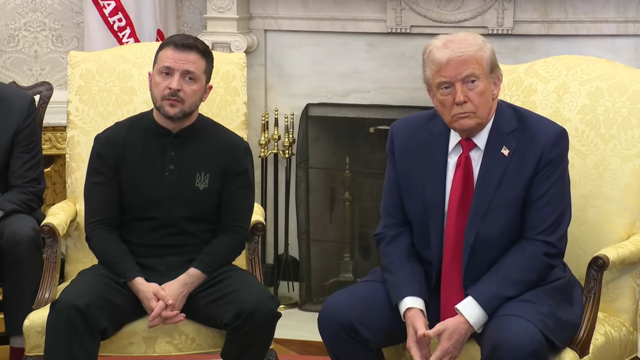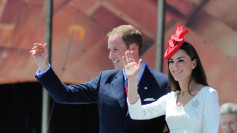U.S. and Ukrainian negotiators reported "meaningful progress toward aligning positions" on President Donald Trump's proposed peace plan during a high-stakes round of talks in Geneva, signaling movement on a framework that has drawn criticism from European governments and alarm from Kyiv's supporters. The White House said Sunday that the discussions produced an "updated and refined peace framework," setting the stage for further negotiations ahead of Trump's Thanksgiving target for an initial agreement.
The joint statement released by the White House emphasized that "final decisions under this framework will be made by the Presidents of Ukraine and the United States," and that Ukrainian delegates believed the revised proposal "reflects their national interests and provides credible and enforceable mechanisms to safeguard Ukraine's security in both the near and long term." The U.S. also said Kyiv's team "affirmed that all of their principal concerns - security guarantees, long-term economic development, infrastructure protection, freedom of navigation, and political sovereignty - were thoroughly addressed."
The talks brought together Secretary of State Marco Rubio, White House special envoy Steve Witkoff, Army Secretary Dan Driscoll and senior adviser Jared Kushner. Rubio later said negotiators had narrowed disagreements substantially, calling it "probably the most productive day we have had on this issue, maybe in the entirety of our engagement," though he added that "work remains." He also noted that Trump is "quite pleased at the reports we've given him about the amount of progress that's been made."
President Volodymyr Zelensky echoed cautious optimism, saying his delegation held "thorough discussions" with U.S. officials. "A lot is changing: we are working very carefully. It is important that there is dialogue with the American representatives, and there are signals that President Trump's team is hearing us," Zelensky said. He added separately on X that "the American proposals may include a number of elements based on Ukrainian perspectives and critical for Ukrainian national interests."
Yet behind the scenes, the path to Sunday's joint statement was rocky. Two people familiar with the talks said an early-morning confrontation occurred when American negotiators accused Ukrainian officials of leaking negative details about the plan to the press. Kyiv's team later agreed to issue a conciliatory public statement "to clear the air," one source said. The Ukrainians then presented a counterproposal, and U.S. officials signaled willingness to incorporate some changes.
The negotiations unfolded against sharp commentary from Trump. During the Geneva meetings, he posted on Truth Social criticizing Zelensky, writing: "I INHERITED A WAR THAT SHOULD HAVE NEVER HAPPENED... UKRAINE 'LEADERSHIP' HAS EXPRESSED ZERO GRATITUDE FOR OUR EFFORTS." The remarks contrasted with Zelensky's earlier message saying he was personally grateful for U.S. support "beginning with Javelin missiles."
Complicating the diplomatic landscape, European allies introduced their own peace framework on Sunday, offering a Kyiv-friendly alternative to the U.S. draft. The European plan proposes that negotiations on territory begin only after a cease-fire and use the existing line of contact as the starting point. It does not require Ukraine to withdraw from cities it controls, nor does it rule out future NATO membership. It also calls for the Zaporizhzhia nuclear plant to be placed under International Atomic Energy Agency supervision.
European leaders privately criticized the original U.S. draft-leaked last week-which demands Ukraine hand over additional territory, cap its military, and abandon NATO ambitions. Poland's President Donald Tusk voiced concern publicly, saying: "It would be good to know for sure who is the author of the plan and where was it created."
The authorship of the U.S. draft has become a point of controversy. Rubio initially acknowledged that the plan was "conceived in Moscow," according to senators briefed on the matter, though he later insisted the U.S. authored the document "with input from Russia and Ukraine." Analysts have noted linguistic clues suggesting the plan may have been translated from Russian.
As diplomatic maneuvering continued, Russian forces launched 15 drone strikes on Kharkiv, killing four people and injuring others, adding urgency to negotiations as Ukraine warned it faces mounting battlefield pressures.
Ukrainian political scientist Olexiy Haran said the leaked Trump proposal is broadly unacceptable to Ukrainians. "Freezing the frontline is a difficult compromise for us, but one a majority would back," he said. "We definitely can't allow all these crazy points in this Trump so-called peace plan."






